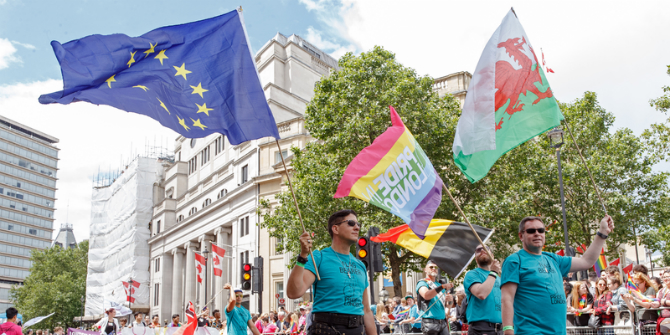Preoccupation with controlling migration is claimed to have been one of the main driving forces behind the Brexit vote. However, Suzi Hall’s ethnographic study of Rye Lane and the street’s economic and cultural life shows that Britain’s withdrawal from the EU is unlikely to have an effect on how migration changes cities in the UK. This is particularly true in Rye Lane where shop proprietors come from all over the globe, which reflects UK’s history and relationship with the world.
This post represents the views of the author and not those of the Brexit blog, nor the LSE. It was first published at Migration Matters. Image credit.
Suzi Hall is Director of the Cities Programme in the Department of Sociology and Senior Research Associate at LSE Cities at LSE. For the past nine years, her work has focused on high streets in marginalised parts of cities across the UK, spanning Birmingham, Bristol, Leicester, London, and Manchester. Suzi’s research encompasses the global processes of migration and urbanisation that continue to shape UK Cities and explores how the structures of inequality and racism intersect with everyday practices of resistance and city-making. She is currently working on an ESRC research project on Super-diverse Streets: Economies and spaces of urban migration in UK Cities.







If these people wish to set up shop, why not do it in their own countries?
It is laughable to dress this up as somehow anything other than economic migrants moving to a country where they think they can enhance their living standards.
Brexit will halt the effect of migration on UK cities, the new immigration policy will control migration from outside EU and from the EU through determining high-skilled occupations for economic migrants who in all cases need to have economic value; hence the reason why Brexit rejects ‘freedom of movement of people’ (stick a pin on a map and say I fancy that place because I want to) . Migration has to be controlled, balanced and beneficial to the country. Controlling migration controls the population
Dear Juliet,
While control of migration may be achieved through a Brexit, the UK will still require large numbers of migrants to help our economy thrive, according to the experts. This would tend to suggest that the rate of migration is unlikely to be cut enormously. At least while trying to control for the economic turbulence which would inevitably occur during a Brexit process.
Furthermore, the mix of skill levels among migrants may change but a large number will still be accepted for more straight forward types of work (at the very least seasonal permits for fruit pickers). All of this will still have a visible impact on the street, in terms of cultural and racial homogeneity.
Finally, you cannot claim that Brexit naturally rejects the freedom of movement of people. That question was not put to the people in June’s referendum.
Kind regards,
Stefan
Migrants who come for specific seasonal work (i.e. fruit pickers) will not have a visual impact on the streets as they will be here for a pre determined length of time and will leave once the work ends. I am not sure what you mean by “in terms of cultural and racial homogeneity”.
“you cannot claim that Brexit naturally rejects the freedom of movement of people. That question was not put to the people in June’s referendum”
It was a referendum, not a poll consisting of a subset of questions based on your previous responses, leaving the EU means, amongst other things, ending freedom of movement.